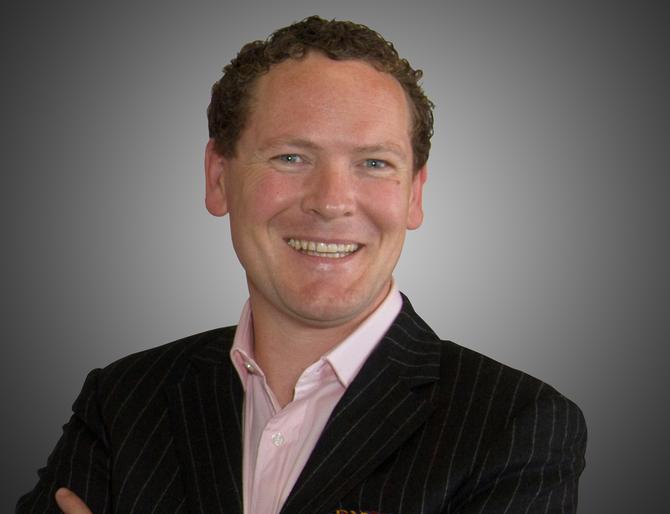Big data has the ability to generate big opportunities for marketers, customers and wider society, but without organisational change we’ll all struggle to utilise it effectively.
The comments were made by CEO of Loyalty New Zealand, Stephen England-Hall, during an interview with CMO in the lead-up to this year’s ADMA Data Day in Sydney and Melbourne.
England-Hall joined Loyalty NZ late last year after more than a decade working for various consumer-centric and technology companies in the telco, digital marketing and media industries. His mandate at Loyalty NZ is to help transform the business at a time when loyalty programs are facing significant change through the democratisation of data.
He claimed loyalty companies were facing the perfect storm of technology, consumer trend and business landscape problems all at once.
“The business is actually doing incredibly well; we have very happy customers, high engagement rates by industry standards, an effective marketing capability and strong financial performance,” England-Hall said. “But everything on the outside is changing, and we were not changing fast enough to maintain our position.”
Data is a key aspect of England-Hall’s strategy, both in terms of increasing the relevancy of content in Loyalty NZ’s marketing and communications, as well as how it delivers relevant services to its clients around customer trends and insights.
But while big data gives organisations the ability to make more choices, and empower marketers and customers to do things much more efficiently and effectively, he warned it is not the Holy Grail.
“You can lead a horse to water, you can’t make it drink,” England-Hall said. “Having more data and advanced tools to utilise means we have to change how we work to bring those thing to a more fruitful outcome. That’s a big challenge for all organisations – most consumers have a better grasp on how to utilise data on their smartphone apps than most companies have on how to use it in their marketing.”
One of the first steps for England-Hall is understanding what data your organisation has at its disposal internally, and utilising that more effectively to improve consumer experiences.
“Part of the big data challenge is not just looking at all the new stuff you have, but what you’ve already got that’s not being maximised,” he added.
Loyalty NZ is doing this is by integrating data from across its client network, not just basket data from a supermarket, to better understand a customer’s purchasing behaviour and the relationship between the products and services they buy.
“Companies often don’t think like that – they just see one customer issue and one problem,” England-Hall commented. “This data utilisation is manifesting itself in many ways. One is increasing the
relevancy of content and information in marketing and communications. We are also creating new customer segments, better targeting ability and more algorithms to improve outcomes.
“The question is what can we give to create value from what we know, and then how can we take that insight and actually apply it.”
This could be removing manual steps in the process, being more relevant or adding value for consumers, he said.
“Part of the challenge is that it’s not just thinking about the next campaign, but the client and how they need to conduct their processes and decision-making,” England-Hall continued.
“The rate of change in consumer behaviour is rapid, and we don’t know enough to predict one year out what to take to the market in our marketing; you need to be able to spot a solution within 24 hours. This can’t be done by most organisations today, as they don’t have the processes or the people.”
To better action data as an organisation, Loyalty NZ has added more consumer intelligence and analysis capability internally, and re-centred talent to align around digital, data and marketing services. It has also invested in technologies to help with predictive modelling and to become more iterative. As part of this focus, the company is increasing data inputs to include environmental change data, applications and location information.
“We have the right data people, are developing talent, and will invest in new technologies and make a few strategic plays in the market to access more properties as we need to deliver more strategic applications and outcomes,” England-Hall said.
For those struggling with data-driven effectiveness, he said it helps to have a rough idea of the problems you are trying to investigate. However, England-Hall also saw benefit in using big data for finding “opportunistic outcomes”.
“There is a big role in big data for discoveries that you weren’t expecting to find, that pop up because of new data or old data sets put together for the first time,” he said. “I don’t think we should cut out that entrepreneurial role of big data. But other than chucking money at the wall and seeing what sticks, there is a need for basic principles and to know roughly what you want to achieve.”
The other point England-Hall stressed is that big data isn’t just about marketing, although he agreed marketers have an obligation to raise new opportunities presented by customer data within their organisations.
A case in point is the New Zealand Government’s work with academia and businesses on the future potential of data in a political, economic and social context through the New Zealand Data Future Forum.
“As marketers we forget the wider story, but the big outcome might be allowing us to predict fires better, or waterway degradation,” England-Hall said. “Big data is also about business operations, supply chain management, better service design, infrastructure planning, and getting cities back on the rails after natural disasters. There is a lot of social good, environmental benefit and wider opportunities to discover.”
More big data case studies from CMO
Follow CMO on Twitter: @CMOAustralia, take part in the CMO Australia conversation on LinkedIn: CMO Australia, or join us on Facebook: https://www.facebook.com/CMOAustralia
Signup to CMO’s new email newsletter to receive your weekly dose of targeted content for the modern marketing chief.












